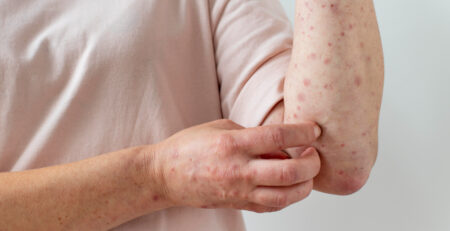Alternative and Complementary Therapies for Female Infertility
Female infertility can be a challenging journey for many women and couples striving to conceive. While conventional medical treatments like fertility drugs and assisted reproductive technologies (ART) such as in vitro fertilization (IVF) are commonly sought after, alternative and complementary therapies have gained attention for their potential benefits in enhancing fertility. These therapies often focus on improving overall health, reducing stress levels, and addressing underlying causes of infertility. In this article, we explore various alternative and complementary therapies that may offer hope to those navigating the complexities of female infertility.
Acupuncture and Traditional Chinese Medicine (TCM)
Acupuncture, a key component of Traditional Chinese Medicine (TCM), involves the insertion of fine needles into specific points on the body. It is believed to help regulate the flow of energy, known as Qi, throughout the body. For women struggling with infertility, acupuncture is thought to improve blood flow to the reproductive organs, balance hormones, and reduce stress. Studies have shown promising results, suggesting that acupuncture may increase the success rates of fertility treatments like IVF when used in conjunction.
Herbal Medicine
Herbal medicine has been used for centuries in various cultures to enhance fertility and reproductive health. Specific herbs such as Vitex (Chaste Tree Berry), Dong Quai, and Black Cohosh are often recommended to regulate menstrual cycles, support hormone balance, and improve overall fertility. It’s crucial to consult with a qualified herbalist or healthcare provider before starting any herbal treatment, as some herbs may interact with medications or have contraindications.
Yoga and Mind-Body Practices
Yoga, meditation, and other mind-body practices are increasingly recognized for their role in reducing stress and promoting overall well-being, factors that can significantly impact fertility. Yoga poses specifically designed to improve blood circulation to the pelvic organs and reduce tension in the body may be beneficial for women trying to conceive. Mindfulness-based stress reduction techniques have also shown promise in studies for enhancing fertility outcomes.
Dietary and Nutritional Support
A balanced diet rich in nutrients is essential for overall health and fertility. Specific dietary interventions such as increasing intake of antioxidants, omega-3 fatty acids, and folic acid may support reproductive function and improve egg quality. Additionally, avoiding excessive caffeine and alcohol consumption while maintaining a healthy weight can positively influence fertility outcomes. Consulting with a nutritionist or dietitian specializing in fertility can provide personalized guidance on dietary changes.
Massage Therapy
Therapeutic massage techniques such as abdominal or fertility massage are designed to improve blood flow to the reproductive organs, reduce muscle tension, and support hormonal balance. These massages can also help alleviate stress and promote relaxation, factors that are crucial for fertility. When combined with other therapies, fertility massage may enhance the effectiveness of conventional treatments like IVF.
Ayurveda
Ayurveda, an ancient Indian system of medicine, offers a holistic approach to fertility through diet, lifestyle modifications, herbs, and detoxification practices. Ayurvedic treatments aim to balance the body’s doshas (vata, pitta, kapha) and improve overall health, which in turn may support reproductive function. Ayurvedic practitioners tailor treatments based on individual constitution and specific fertility concerns.
Homeopathy
Homeopathy utilizes highly diluted natural substances to stimulate the body’s self-healing mechanisms. For infertility, homeopathic remedies are prescribed based on the individual’s physical, emotional, and mental symptoms. Remedies such as Sepia, Lycopodium, and Pulsatilla are commonly used to address hormonal imbalances, irregular menstrual cycles, and other fertility-related issues. Like with other alternative therapies, consulting a qualified homeopath is crucial for personalized treatment.
Integrating Alternative Therapies with Conventional Medicine
While alternative and complementary therapies offer potential benefits for female infertility, they should not replace conventional medical treatments but rather complement them. Integrative approaches that combine these therapies with evidence-based medical interventions like IVF may provide a comprehensive approach to improving fertility outcomes. It’s essential for individuals considering alternative therapies to work closely with their healthcare providers to ensure safe and effective treatment plans.
Conclusion
Navigating female infertility can be emotionally and physically taxing, prompting many individuals to explore alternative and complementary therapies. From acupuncture and herbal medicine to yoga and Ayurveda, these therapies offer diverse approaches to enhancing fertility while promoting overall well-being. While research continues to explore their effectiveness, many women have reported positive experiences with these therapies in their fertility journey. As with any medical decision, consulting with qualified healthcare professionals is essential to tailor a treatment plan that addresses individual needs and maximizes chances of conception. Through a holistic approach encompassing both conventional and alternative therapies, individuals can empower themselves on their path to achieving pregnancy and building their families.











